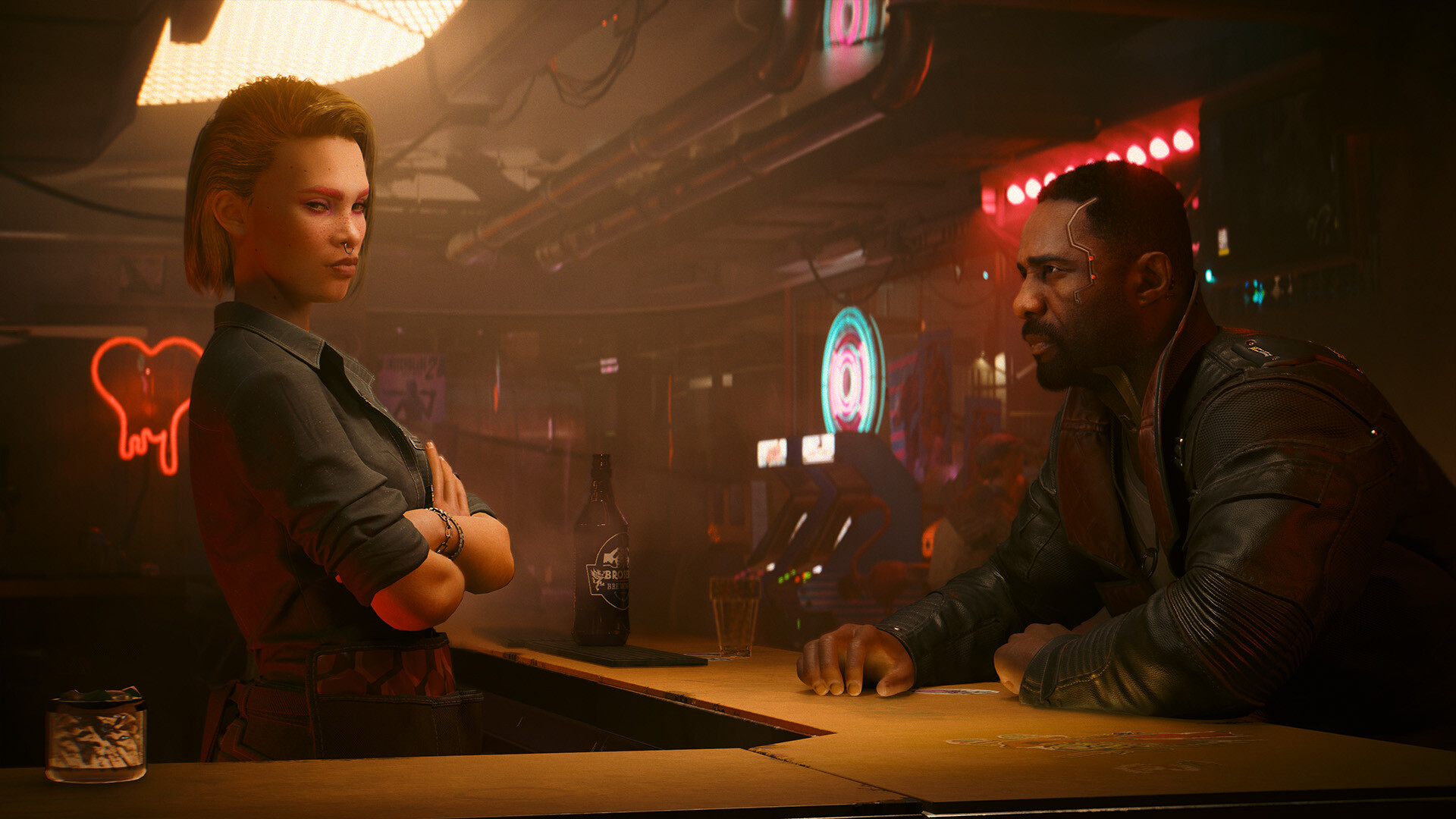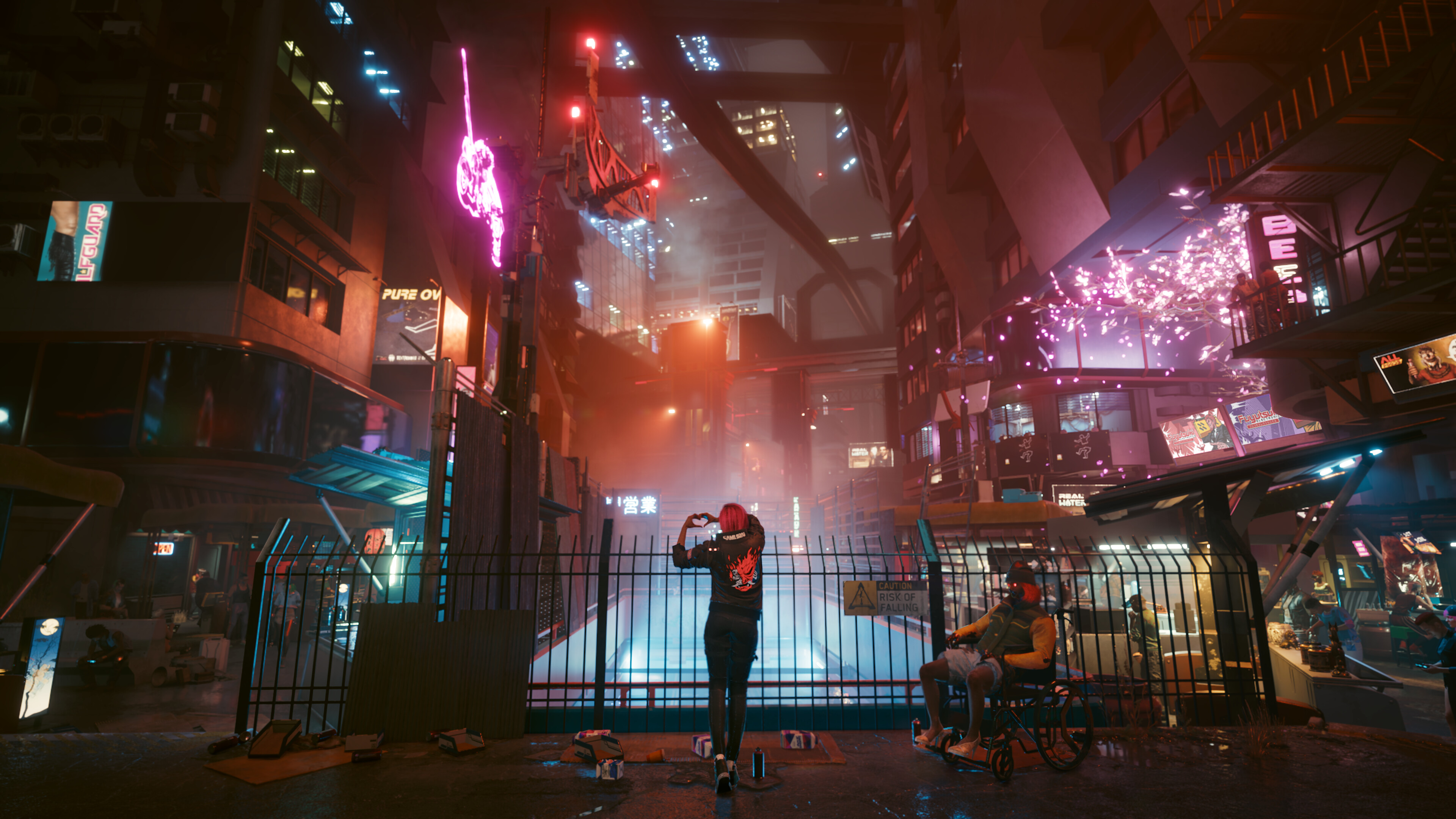Cyberpunk 2077 sequel lead says avoiding crunch is key to keeping studios afloat: "Sustainability is incredibly important"
CD Projekt RED moved away from "old fashioned" production methods during Phantom Liberty's development

Cyberpunk 2077: Phantom Liberty's quest director and the associate game director of the Cyberpunk sequel, Paweł Sasko, has been talking about the importance of sustainability in game development, and the benefits of not overworking teams to the point of crunch.
CD Projekt RED's 2020 action-RPG Cyberpunk 2077 had a shaky launch, and a turbulent development that, understandably, was said to have had a "significant" impact on the team's morale. According to an interview with Aftermath, this caused some employees to leave the company, causing the studio to rethink its development processes. Thankfully, Sasko believes that the studio changed for the better during the making of the Phantom Liberty expansion, to the point where developers are now able to head into new projects without going through extended periods of overtime – or crunch – first.
"Sustainability is incredibly important,” Sasko says. “To be able to, when you are finishing up a project, have a team in a state where they haven't been doing crunch or overtime or anything, that they are able to go into the production of the next thing, which means delivering something earlier, which means having a product you can sell as a studio, which means having the money to sustain. That requires your production to be structured in a way where it does not require those spikes, those moments when suddenly there's an all-hands-on-deck approach."
It all makes perfect sense, of course. Crunch has long been considered one of the biggest issues plaguing the games industry due to the exhausting detrimental effect it has on developers, and it's easy to see how it'd be hard for devs to work to their best ability on new projects after facing it. Burnout is also a major problem here – in fact, CRPG veteran Josh Sawyer recently said that it's "replaced crunch as the primary hazard of the game industry."

In CD Projekt RED's case, to move away from its "old-fashioned" methods, the studio created content teams, which saw "a quest designer, cinematic designer, open-world designer, writer, QA, environment artists, VFX artists, SFX artists" all collaborating on specific pieces of content together. Sasko describes this as having "22 different specialties in one pod," all with a shared goal such as making a certain quest. "And then when we were reviewing that content as directors, we were always looking at it together, as a team," he adds.
He explains that, to an extent, this process saw the studio "move the decision making to the team," too. Essentially, developers were allowed the freedom to make many of the choices surrounding their goal, so long as they remained within certain boundaries such as the wider story and theme, which were clearly defined throughout.
Later in the interview, Sasko says that this process used in Phantom Liberty's development irons out "bottlenecks" in production. He adds: “If the team is making the right decisions, and then the leads and directors look at it and are like 'This is very good quality,' then it's the best possible situation. You don't have to change anything, course correct, or remove or add anything. The team did their job."
Sign up to the GamesRadar+ Newsletter
Weekly digests, tales from the communities you love, and more
Previously, CD Projekt RED's engineering director of management and audio, Colin Walder, said that going forward, "once the team sees a genuine effort to prevent crunch – that's when trust and morale start to rebuild." So, all in all, it really does sound like the studio has a more positive outlook when it comes to avoiding crunch in the future – let's just hope that continues to be the case in practice.
If you want more Cyberpunk vibes in your life, be sure to check out our recommendations for 10 games like Cyberpunk 2077.

I'm one of GamesRadar+'s news writers, who works alongside the rest of the news team to deliver cool gaming stories that we love. After spending more hours than I can count filling The University of Sheffield's student newspaper with Pokemon and indie game content, and picking up a degree in Journalism Studies, I started my career at GAMINGbible where I worked as a journalist for over a year and a half. I then became TechRadar Gaming's news writer, where I sourced stories and wrote about all sorts of intriguing topics. In my spare time, you're sure to find me on my Nintendo Switch or PS5 playing through story-driven RPGs like Xenoblade Chronicles and Persona 5 Royal, nuzlocking old Pokemon games, or going for a Victory Royale in Fortnite.


